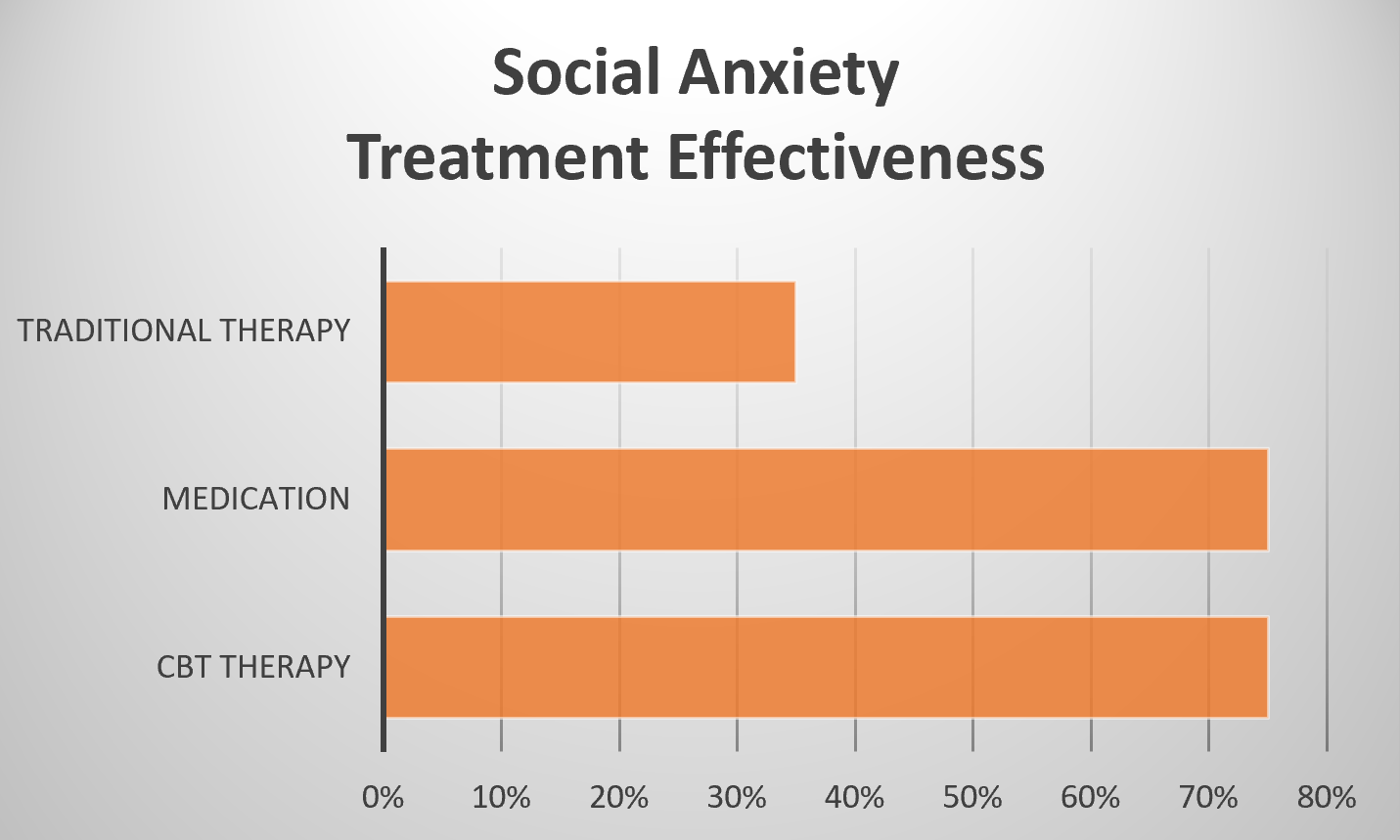Take control of your life with counselling for anxiety support today
Take control of your life with counselling for anxiety support today
Blog Article
Discovering Various Approaches in Counselling for Stress And Anxiety Problem for Long Lasting Adjustment
When dealing with stress and anxiety conditions, it's important to explore a variety of counseling strategies. Each approach supplies distinct understandings and tools to assist you manage your symptoms properly. You may locate that incorporating methods can yield the very best outcomes. Comprehending the nuances of these techniques is essential to fostering long-term modification. What happens if the ideal mix could launch a brand-new degree of emotional wellness for you?
Recognizing Stress And Anxiety Problems: A Quick Introduction
Stress and anxiety problems, which influence numerous individuals worldwide, can considerably influence life. You might experience frustrating feelings of worry or stress that appear uncontrollable. These feelings can result in physical signs and symptoms like an auto racing heart, sweating, or perhaps dizziness. Common types of anxiety problems consist of generalised anxiousness disorder, panic disorder, and social anxiousness condition. Each has one-of-a-kind signs, yet they all share a tendency to interrupt your routine and relationships.Understanding the source of your stress and anxiety is essential. It could stem from genetics, brain chemistry, or life experiences. Identifying your triggers can help you manage your reactions much better. It is necessary to keep in mind that you're not alone in this battle. Many individuals encounter similar challenges, and seeking aid is a solid action toward feeling much better. By learning more about stress and anxiety problems, you're already on the course to understanding and managing your problem much more properly.
Cognitive-Behavioral Treatment: Testing Negative Thought Patterns
In Cognitive-Behavioral Therapy, you'll start by recognizing the adverse thought activates that add to your anxiety. You'll work on changing them with more positive options once you recognize these thoughts. Together, you'll construct effective coping approaches to help manage your stress and anxiety in day-to-day situations.
Recognizing Adverse Idea Triggers

Identifying the details triggers behind your adverse ideas can be necessary in taking care of stress and anxiety when you experience moments of distress. Begin by taking notice of circumstances that prompt feelings of worry or fear. Is it a jampacked space, a forthcoming target date, or a discussion with certain individuals? Write down these instances in a journal. This will assist you identify patterns in your reasoning. Also, notification physical experiences that accompany your negative thoughts, like an auto racing heart or tightness in your chest. By identifying these triggers, you gain understanding into what's fueling your anxiety. Understanding these connections is the primary step in challenging those thoughts and ultimately reclaiming control over your psychological actions.
Replacing Thoughts With Positives
Testing adverse idea patterns is a necessary action in changing your state of mind and lowering anxiety. You might frequently find yourself trapped in cycles of self-doubt or devastating thinking. As opposed to letting these thoughts dictate your feelings, technique changing them with realistic options or favorable affirmations. For example, when you assume, "I can not manage this," move it to, "I can take care of difficulties one step at once." This basic change can greatly affect your mood. Regularly determining and responding to these negative ideas assists create a healthier internal discussion. Keep in mind, it takes some time and initiative, but consistently exercising this technique can result in lasting change, encouraging you to encounter anxiousness with renewed self-confidence and resilience.
Building Coping Approaches With Each Other
Replacing negative ideas is just the beginning of handling anxiousness properly. To create enduring modification, you need to build coping techniques that equip you. Cognitive-Behavioral Therapy (CBT) aids you identify and challenge those purposeless idea patterns. Together, you and your counselor can check out how these thoughts effect your sensations and behaviors.Start by developing useful techniques, like journaling or mindfulness workouts, that enable you to challenge anxiousness head-on. When you face your concerns gradually, you'll learn to respond in different ways.

Mindfulness and Acceptance-Based Approaches: Cultivating Present-Moment Awareness
As you browse the complexities of anxiety, including mindfulness and acceptance-based methods can significantly enhance your capacity to grow present-moment awareness. By concentrating on the right here and now, you'll find that you can observe your ideas and sensations without judgment (Counseling services for anxiety). This technique aids you recognize your stress and anxiety without feeling bewildered by it.Engaging in mindfulness workouts, such as deep breathing, body scans, or led meditations, allows you to ground yourself in your existing experience. Acceptance-based approaches motivate you to welcome your feelings instead of combat against them. When you accept your feelings, they shed their power over you.Incorporating these practices right into your day-to-day routine can change how you reply to stress and anxiety. You'll establish resilience and learn to navigate demanding circumstances with better simplicity. Inevitably, growing present-moment recognition lays the structure for long-term adjustment, encouraging you to lead a more meeting life
Exposure Treatment: Facing Anxieties Slowly
Direct exposure treatment aids you confront your anxieties in a progressive method, making it less overwhelming. You'll learn techniques to face anxiety-provoking situations step by action, while likewise building coping strategies to handle your reactions. This approach encourages you to take control and decrease anxiety in time.
Progressive Direct Exposure Strategies

When facing anxiety, progressively confronting your concerns can be a powerful way to gain back control. This strategy, referred to as gradual direct exposure, includes slowly exposing yourself to the circumstances or things that activate your anxiousness. Beginning with much less intimidating circumstances and slowly work your way up to more difficult ones. As an example, if you hesitate of public speaking, you might start by talking before a mirror, then advance to sharing ideas with a pal, and eventually address a tiny group. Each action assists desensitize you to the concern, developing your confidence in time. Bear in mind, it's important to pace yourself and celebrate tiny triumphes as you relocate with this process, enhancing your capability to handle anxiety efficiently.
Structure Coping Strategies
Building efficient coping approaches is important for managing stress and anxiety, specifically as you face your concerns progressively - Counseling services for anxiety. One powerful method is exposure treatment, where you start by facing your anxieties in a controlled way. Start with less daunting situations and gradually work your way as much as more challenging circumstances. This gradual exposure assists desensitize you to anxiousness causes, making them much less overwhelming.Incorporate leisure techniques, such as deep breathing or mindfulness, to relax your mind during exposure. Track your progress, celebrating tiny triumphes in the process to improve your confidence. Keep in mind, it's fine to take your time; the objective isn't perfection but steady renovation. By building these techniques, you'll encourage yourself to navigate anxiety and welcome life more completely
Psychodynamic Therapy: Discovering Root Reasons of Anxiety
Psychodynamic treatment checks out the subconscious mind, revealing the root creates of your anxiety. By analyzing your ideas, feelings, and previous experiences, this technique helps you uncover underlying problems and unsettled issues that might add to your current anxiousness. You'll deal with a therapist to check out youth experiences, partnerships, and psychological patterns that form your reactions today.As you gain insight right into these deeper layers of your psyche, you'll begin to identify just how previous occasions influence your existing actions. This understanding can cause catharsis, enabling you to process emotions you may have suppressed.Through the healing partnership, you can likewise identify defense reaction that might have established with time, using a clearer course to alter. Ultimately, psychodynamic treatment equips you with the devices to resolve your anxiousness at its core, promoting lasting change in your emotional health.
Integrative and All Natural Approaches: Incorporating Techniques for Greater Effectiveness
Integrating numerous therapeutic techniques can enhance your journey toward managing anxiety better. By integrating aspects from cognitive-behavioral treatment, mindfulness practices, and alternative strategies, you can develop an individualized strategy that addresses your distinct demands. For circumstances, you might utilize cognitive-behavioral strategies to challenge negative idea patterns while including mindfulness exercises to ground yourself in today moment.Additionally, checking out alternative methods such as yoga exercise or reflection can advertise relaxation and reduce stress and anxiety signs and symptoms. This mix allows you to develop better self-awareness and resilience.Experimenting with these varied techniques can assist you uncover what resonates most with you. Remember, it has to do with locating a harmony that functions, instead than sticking to a solitary method. This integrative method not only provides prompt alleviation but also cultivates lasting abilities for managing anxiety, encouraging you to redeem control over your life.
The Function of Support Systems: Structure Strength Via Link
While it might appear that handling anxiety is a singular trip, having a solid support system can play a crucial function in your strength. Surrounding on your own with compassionate friends, household, or support system develops a risk-free room where you can honestly share your experiences and sensations. You advise on website your own that you're not alone in this struggle.These connections supply motivation and can offer practical coping techniques that have worked for others when you attach with others. It's likewise an opportunity to obtain point of view; pals can help you see scenarios differently, lowering sensations of isolation.Moreover, psychological support promotes a feeling of belonging, which can substantially alleviate anxiety signs and symptoms. By leaning on your assistance system, you can build strength and deal with difficulties extra effectively. Bear in mind, reaching out for help is an indication of strength, and it can make all the difference in your journey toward managing anxiety.
Regularly Asked Questions
What Are the Usual Signs And Symptoms of Anxiety Problems?
You might experience restlessness, tiredness, problem focusing, irritation, muscle tension, and rest disruptions. Physical symptoms can consist of rapid heart beat, sweating, and trembling. Recognizing these signs early can aid you look for proper assistance and treatment.
The Length Of Time Does Treatment Normally Last for Stress And Anxiety Conditions?
Therapy for anxiousness disorders commonly lasts anywhere from a few weeks to a number of months. It really relies on your individual requirements, development, and the strategies your specialist utilizes to assist you manage your anxiety properly.
Can Drug Be Used Alongside Therapy for Anxiety?
Yes, medicine can certainly be utilized alongside therapy for anxiousness. Combining both techniques commonly improves therapy performance, assisting you take care of signs and symptoms while discovering underlying issues via therapy (Counseling services for anxiety). Constantly consult your doctor for tailored recommendations
Are There Self-Help Methods for Handling Anxiousness?
Yes, there are a number of self-help techniques for managing anxiousness. You can practice mindfulness, involve in normal workout, keep a balanced diet, develop a routine, and make use of deep breathing techniques to help decrease anxiety signs properly.
Just how Do I Know if I Need Professional Aid for Anxiety?

Report this page